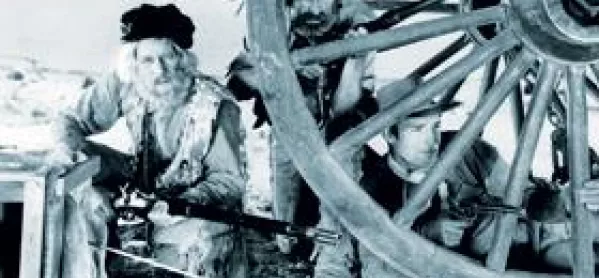Schools too concerned with making the grade

The architects of Curriculum for Excellence (CfE) have expressed deep frustration over the continuing dominance of exams in Scottish schools and the education system’s resistance to change.
A decade after the publication of CfE, several key figures have voiced their concerns that not nearly enough progress has been made and that too many young people are still disengaged from education. Members of the 2003 review group set up to shape CfE have also admitted that they underestimated how ingrained prescriptive teaching techniques had become.
The comments, which were made last week at a meeting of CfE’s founding fathers at the University of Glasgow, come against the backdrop of a renewed focus on assessment within schools.
The new National 4 and 5 qualifications have worried some people, with parents expressing concerns about the rigour and value of National 4, for example, because it can be obtained without external examination.
Peter Peacock, minister for education and young people between 2003 and 2006, told the Glasgow gathering that he considered it a “great tragedy” that exams still drove the education system. “We have never really had a serious debate about.how much time and resource we devote to that age-16 exam structure,” he said, adding that the prospect of doing away with some exams remained a “bloody hard sell”.
George MacBride, a senior research fellow at the University of Glasgow’s School of Education and a member of the curriculum review group, agreed that assessment had been ignored in setting up CfE.
“We underestimated seriously the degree to which the teaching profession had become acculturated to a prescriptive teaching approach,” he said. “A large number of teachers were probably not touched by the engagement process other than seeing a large number of documents heading in their direction.”
Mr MacBride did not approve of the radical reforms pursued by former Westminster education secretary Michael Gove but acknowledged that in Scotland it would be “extremely hard” even to propose such change. The education system could be extremely defensive, he said, and when challenged its reaction was akin to “circling wagons round a campfire”.
Complaints about the closed nature of the education sector were a notable feature of the meeting, particularly when it came to the lack of dissenting voices raised during the design and implementation of CfE.
Mr Peacock recalled useful exchanges with the former MSP and Conservative education spokesman Brian Monteith, who was on the right wing of his party. “You need dissenting voices to keep your own arguments sharp,” he said.
Yet University of Stirling visiting professor Walter Humes, who was part of the audience, said that dissenting voices were “systematically excluded” from Scottish educational policy.
Speaking to TESS after the event, Mr Monteith agreed. “Saying anything different was seen to be stepping out of line,” he said. The fact that ideas which considered taking responsibility away from local education authorities had not been countenanced, he added, illustrated the education system’s resistance to change. However, Mr Monteith disagreed with one big change that had taken place: ceasing to publish information that could be used to create school league tables. “I know the argument was that they were open to misinterpretation, but now you can’t have any interpretation,” he said. Nevertheless, many speakers insisted that CfE was on the right path despite its problems. “I haven’t heard anyone who has concerns about the direction of travel,” said Louise Hayward, professor of pedagogy, policy and practice at the University of Glasgow. And Ken Cunningham, general secretary of School Leaders Scotland, said comments suggesting that exams continued to drive school education as they had in the past were “unfair criticism”. Mr Cunningham attended the event and did not believe the mood should have been so sombre, with new National qualifications still bedding in after being introduced in 2013-14. Only after two or three cohorts had been through the Nationals would a clearer picture of their impact emerge, he argued. “I just thought it was all a bit early to be saying things like that when we’ve only been going through the first batch of these qualifications,” he said. Teachers were relatively powerless to reduce the importance of exams, he added, if government and wider society still relied on them to assess educational success. But Mr Cunningham stressed that qualifications were more skills-based now than a decade ago. “A lot of effort” had been put into creating different kinds of qualifications, he said.
Keep reading for just £1 per month
You've reached your limit of free articles this month. Subscribe for £1 per month for three months and get:
- Unlimited access to all Tes magazine content
- Exclusive subscriber-only stories
- Award-winning email newsletters



